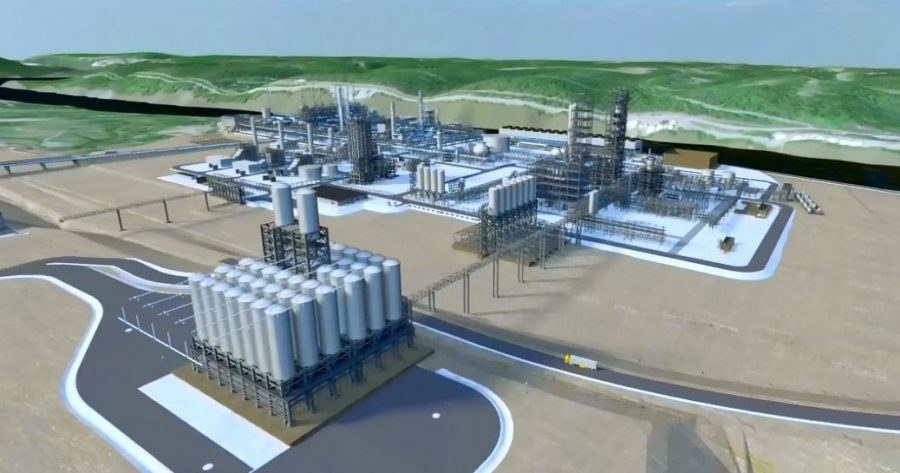Porters township Ethane cracker to cause job spike, pollution
In June 2016, Shell Chemical Appalachia announced its plans to construct a multibillion dollar petrochemical plant in Potter Township, Beaver County, Pennsylvania . The ethane “cracker” plant is an industrial building where gas and oil particles are broken into smaller particles for the purpose of constructing plastic materials. These materials can be used in everything from food packaging to automotive parts. The placement of the plant is a logical choice for Shell, with its closer, more reliable fuel supply chains and proximity to potential North American polyethylene customers.
The proposed plant is estimated to bring 6,000 new construction jobs to Beaver County. Additionally, the plant plans to permanently employ 600 residents. After years of speculation, the plant is scheduled to be up and running within the next decade.
After much bidding, Pennsylvania won the right to construct the plant on March 15, 2012. Pennsylvania managed to outbid the other two prospective buyers—Ohio and West Virginia—by offering a 15-year tax amnesty window, as well as a $2.10 credit for every gallon of ethane it purchases from Pennsylvania -based drillers. After 25 years, the tax break will amount to $1.65 billion, the largest credit in Pennsylvania history. This proposed break has caused uproar among renewable energy enthusiasts.
Arguments against fossil fuel giants like Shell spur from the lack of subsidies for renewable energy. Proposed impacts on the local economy are astounding, and the plant is projected to slice unemployment rates in Beaver County. Governor Tom Wolf suspects the project will lure other local manufacturers to swarm around the plant.
Shell plans to compensate for more than just the plant’s construction cost. Shell originally purchased the land from its previous owner, Horsehead, in November 2014 for a hefty $13.5 million. In January 2015, Horsehead began demolishing the former site at the cost of Shell.
The expenses don’t stop there. According to rocis.org, Shell has set aside $80 million to deal with environmental contamination inherited from Horsehead and its predecessors, $60 million to shuffle roadways and an additional $69 million for the Center Township Water Authority to relocate its water intake site and build a new water treatment plant.
Aside from the plant’s physical footprint, many residents worry about its environmental one. For many, the cracker plant is yet another potential landmark to Pennsylvania’s poor environmental track record. Joe Minott, executive director and chief counsel for the Clean Air Council, is especially distressed about the potential for chemical-based ground level smog, the kind of pollution that most affects residents.
In response, Shell made a statement referring to their environmental clearance that meets state emission standards. Both sides of the cracker plant debate acknowledge the potential risks and benefits. Pennsylvania residents may have found a happy balance between economic opportunity while still acknowledging the environmental risks.



